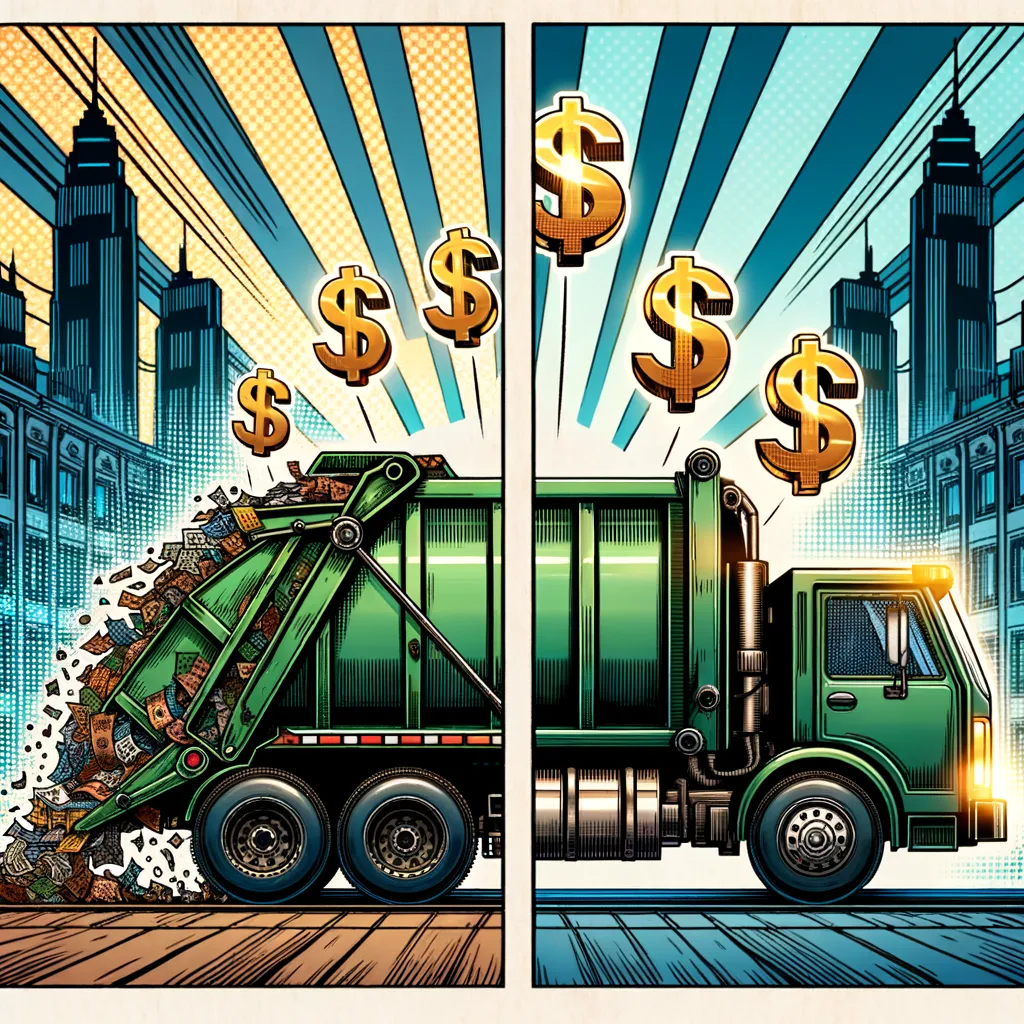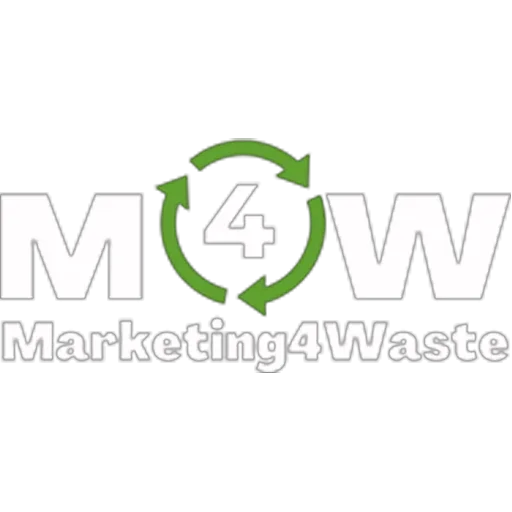Increase the Revenues of Your Waste Company With the Tips Shared in Our Blog Articles

EXPOSED: The Million-Dollar Waste Management Secret Big Companies Don't Want You to Know - How Small Operators Can Restructure for Rapid Profits and Crush the Competition
Listen up, waste warriors! If you're running a small waste management company and you're not swimming in profits like Scrooge McDuck in his money bin, you're leaving cold, hard cash on the table. And let's face it, in our business, leaving anything on the table is a cardinal sin.
Now, you might be thinking, "Sam, restructuring is for those big shots with their fancy corner offices and overpriced consultants." Well, buckle up, buttercup, because I'm about to show you how the secrets of the big boys can supercharge your small operation faster than a garbage truck on green lights.
Let's dive into the three key aspects of restructuring that can turn your waste management business from a dumpster fire into a money-printing machine.
1. Assessment: Digging Through Your Business's Trash
Big companies spend millions on consultants to tell them what's wrong. But you, my friend, have something better: intimate knowledge of your business and the hunger to succeed.
Start by getting your hands dirty. Dive into every nook and cranny of your operation. How efficient are your routes? Are your trucks running at full capacity or half-empty like a politician's promises? Is your team working like a well-oiled machine or a rusty old clunker?
Don't just look at what's not working. Identify your golden nuggets - the services or clients that are bringing in the bacon. Maybe your commercial contracts are booming while residential pickups are dragging you down. Or perhaps your recycling division is a hidden gem waiting to be polished.
Talk to your team. From the drivers to the office staff, they're on the front lines. They know where the bottlenecks are, where money's being wasted, and where opportunities are knocking.
And for Pete's sake, talk to your customers! Find out what they love about your service and what makes them want to throw you in the compactor. Their feedback is pure gold.
Remember, in the waste business, one man's trash is another man's treasure. Your assessment might reveal that the "unprofitable" green waste division you've been ignoring is actually a potential goldmine in the booming composting market.
The beauty of being small? You can do this assessment in weeks, not months. You can implement changes on Monday that you thought of on Friday. Try that in a corporate behemoth!
2. Designing Your Profit Machine
Once you've got the lay of the land, it's time to redesign your business for maximum profit. This isn't about making things pretty - it's about creating a lean, mean, waste-collecting machine.
Start with your org chart. In a small business, every role counts. Do you really need three layers of management for a team of 15? Or could you flatten that structure, empower your top performers, and cut the dead weight?
Look at your services. Are you trying to be all things to all people? That's a fast track to mediocrity and bankruptcy. Instead, focus on what you do best. If commercial waste is your bread and butter, double down on that. Become the go-to company for restaurants or office buildings.
Consider specialization. Maybe you've discovered a niche in hazardous waste disposal or electronics recycling. That's where the big bucks are, my friend. Become the expert in a high-value niche, and you'll have customers throwing money at you faster than they throw away last week's leftovers.
Design your processes for efficiency. Can you optimize your routes to cut fuel costs? Can you implement a simple software solution to streamline billing and customer service? Small changes can lead to big savings.
And here's a secret the big companies don't want you to know: being small means you can pivot fast. Design your new structure to be flexible. Be ready to pounce on new opportunities or cut loose unprofitable ventures without getting tangled in red tape.
3. Phased Implementation: Rolling Out Your Profit Plan
Now, I know you're chomping at the bit to implement all these changes yesterday. Slow down, hotshot. Even in a small business, you need to roll out changes strategically. But here's the good news: you can do it much faster than the big boys.
Start at the top. As the owner, you need to embody the new direction. If you're shifting focus to commercial clients, be the face of that change. Start making those sales calls yourself.
Next, bring your key team members on board. These are your lieutenants, the ones who'll make or break your new structure. Get them excited about the changes. Show them how it'll make their jobs easier and more rewarding.
Implement changes in phases, but move quick. In a big company, each phase might take months. You can do it in weeks. Start with the easiest wins - maybe it's optimizing your routes or cutting that unnecessary middle management position.
As you roll out each phase, keep your team in the loop. Overcommunicate. Make sure everyone knows what's changing, why it's changing, and how it benefits them. In a small company, rumors spread faster than a landfill fire. Get ahead of them with clear, consistent communication.
Celebrate your wins, no matter how small. Did the new routing system save you $500 in fuel this week? Throw a pizza party for the team. These small victories build momentum and buy-in.
And here's the kicker: in a small business, you can course-correct on the fly. If something's not working, change it. No committees, no board approvals. Just make the call and move on.
The Money-Making Magic of Restructuring
Now, let's talk results. When big companies restructure, they might see a 5% improvement in efficiency or a 10% boost in profits. But for a small waste management company? We're talking potential growth of 50%, 100%, or even more.
I've seen small operators double their revenue in a year by focusing on high-value commercial contracts. I've watched family-run businesses cut costs by 30% just by optimizing their routes and processes. And I've helped owner-operators transform from jack-of-all-trades to niche experts, multiplying their profits in the process.
The secret sauce? Speed and flexibility. You can implement changes faster, see results quicker, and adjust on the fly. While the big companies are still drafting their restructuring plans, you're already reaping the rewards.
But here's the hard truth: none of this happens by accident. You need to take action. You need to be willing to take a hard look at your business, make tough decisions, and push through the discomfort of change.
The waste management industry is changing fast. New technologies, shifting regulations, and evolving customer demands are creating opportunities and threats. The companies that will thrive are the ones that can adapt quickly and efficiently.
That's where you have the advantage. You're not dragging around the dead weight of corporate bureaucracy. You're nimble, you're hungry, and now you have the blueprint for success.
So, what are you waiting for? It's time to stop treating your business like a garbage dump and start seeing it for what it really is: a gold mine waiting to be tapped.
Get assessing. Start designing. Begin implementing. Your future profits are calling, and trust me, that's one call you don't want to send to voicemail.
Remember, in the waste management game, fortune favors the bold. So be bold, be smart, and most importantly, be profitable. Your competition won't know what hit them.
To Your Success,
Sam Barrili
The Waste Management Alchemist


© 2025 Marketing4waste - All Rights Reserved,
Marketing4Waste is a brand of MiM MarketingInterimManagers LLC
+1 801 804 5730

